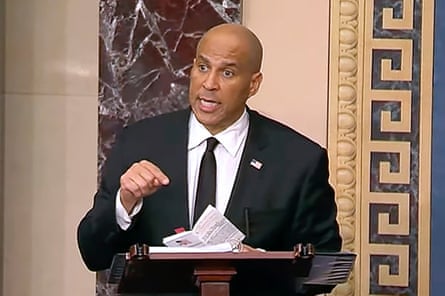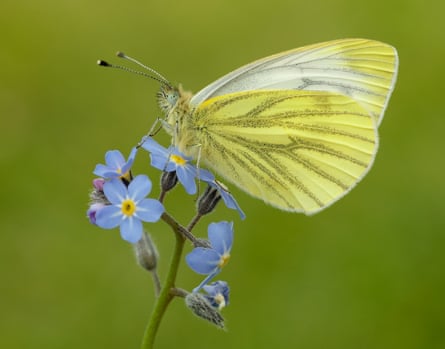Good morning.
The liberal judge Susan Crawford won the race for a seat on the Wisconsin supreme court on Tuesday in a big coup for Democrats, after Elon Musk backed the conservative candidate, making it the most expensive judicial contest in US history.
“Today Wisconsinites fended off an unprecedented attack on our democracy,” Crawford said in her victory speech. “Wisconsin stood up and said loudly that justice does not have a price. Our courts are not for sale.” Musk and associated groups spent millions on her rival, Brad Schimel, a former Republican attorney general and conservative judge.
With more than 84% of the vote tallied, Crawford was ahead of Schimel by nearly 10 percentage points. Schimel accepted defeat as crowds booed.
- How important is this for liberals? It’s a big win. They will retain their 4-3 ideological majority on the state supreme court, which will hear cases about abortion and collective bargaining.
- How did the campaign organisers pull it off? Milwaukee reported record turnout, even running out of ballots in some polling places. Democrats said Musk’s involvement had galvanised people to get involved in grassroots efforts.
Trump to announce another tranche of sweeping tariffs

Donald Trump speaks at the White House on 31 March 2025. Photograph: Abaca/Rex/Shutterstock
Donald Trump will announce his latest round of tariffs on Wednesday afternoon in a moment he has called “liberation day” in his trade war that has sent jitters through global markets and is proving unpopular with much of the public.
Trump has caused bitter divisions with the US’s key trading partners, most notably Canada, with his bellicose rhetoric on tariffs since taking office. He has also repeatedly delayed and rolled back plans to impose them.
The White House has said the introduction of sweeping tariffs, scheduled to be announced at 4pm ET, would be immediate, but nothing has been confirmed ahead of the speech. Trump’s press secretary said he was still “perfecting” the plan on Tuesday.
- What’s on the table? Potentially reciprocal tariffs on the US’s trading partners, as well as 25% tariffs on all imports from Mexico and Canada.
- Which tariffs are already in force? A 20% tariff on all Chinese imports, 25% on all steel and aluminium imports, and a 10% tariff on energy imports from Canada.
Israel announces plan to seize ‘large areas’ in Gaza

Palestinians inspect the site of an Israeli strike on a house in Khan Younis in the southern Gaza Strip on Wednesday. Photograph: Hatem Khaled/Reuters
Israel intends to expand its war and capture “large areas” of Gaza, the country’s defence minister has said.
Israel Katz said in a statement that the offensive was “expanding to crush and clean the area of terrorists and terrorist infrastructure and capture large areas that will be added to the security zones of the state of Israel”.
Strikes continued on Gaza on Wednesday morning. Medical sources in the territory told Al Jazeera that Israeli attacks had killed 21 Palestinians since dawn.
- How has the announcement been received in Israel? It was condemned by a former hostage and the Hostages Families Forum, which said it showed the return of 59 hostages still in Gaza was “a secondary task” to the Netanyahu administration.
In other news …

The US senator, Cory Booker, giving the longest speech in Senate history. Photograph: AP
- Cory Booker, the Democratic US senator from New Jersey, delivered a record-breaking 25-hour speech warning fellow senators about the dangers Donald Trump poses to US democracy.
- The former Costa Rica president and Nobel peace prize winner Óscar Arias has said his US visa was revoked after he criticised Trump.
- Val Kilmer, the actor who starred in Top Gun and Batman Forever, has died of pneumonia at the age of 65.
- Republicans have won both House of Representatives seats that were up for grabs in Florida after they were vacated by Donald Trump’s cabinet nominees.
skip past newsletter promotion
Sign up to First Thing
Our US morning briefing breaks down the key stories of the day, telling you what’s happening and why it matters
Privacy Notice: Newsletters may contain info about charities, online ads, and content funded by outside parties. For more information see our Privacy Policy. We use Google reCaptcha to protect our website and the Google Privacy Policy and Terms of Service apply.
after newsletter promotion
Stat of the day: Lowering bad cholesterol ‘may cut risk of dementia by 26%’

Further research is needed as the number of people living with dementia worldwide is forecast to nearly triple to 153 million by 2050. Photograph: Maskot/Getty
Cutting your levels of bad cholesterol could lower the risk of dementia by 26%, a study suggests, with the chances of developing Alzheimer’s disease particularly reduced. Foods high in saturated and trans fats are common sources of LDL-C, also known as bad cholesterol. The number of people living with dementia worldwide is expected to nearly triple to 153 million by 2050, but close to half may be possible to prevent or delay the onset of the condition.
Don’t miss this: Ezra Klein on Trump – ‘It feels like we are in one of the darkest imaginable timelines’

The journalist Ezra Klein argues that the Trump administration makes it more vital than ever that liberal democracy can deliver. Photograph: Winni Wintermeyer/The Guardian
The New York Times podcast host Ezra Klein and the Atlantic journalist Derek Thompson wrote Abundance in a different time, before the Trump administration and Elon Musk had taken a sledgehammer to the services provided by the government. The book’s central premise is that government is so tied up in red tape and nimbyism it struggles to execute projects that benefit people’s lives. Rather than rendering it irrelevant, Klein argues that this “darkest timeline” makes it more vital than ever that liberal democracy can deliver.
Climate check: Last summer was second worst for common UK butterflies since 1976

The green-veined white is one of the nine species that had its worst year on record in 2024. Photograph: Iain H Leach
Common butterflies found in gardens, parks and fields in Britain had their second-worst summer since 1976 last year, the world’s largest scientific survey of insect populations has found. Dr Richard Fox, the head of science at Butterfly Conservation, said extreme weather, made increasingly common by the climate crisis, was turbocharging the biodiversity crisis that affects their numbers. “When we have poor weather, these already depleted butterfly populations are highly vulnerable and can’t bounce back,” he said.
Last Thing: What’s on your ‘do not play’ list?

I don’t … want to hear that song. Photograph: Klaus Vedfelt/Getty
Whether you’re vetoing Kanye after his antisemitic slurs or Kid Rock over being close to Donald Trump, there’s more than a few songs you might not want to hear on your wedding day or party. In that case, tick them on the “do not play” list. Don’t worry, it doesn’t have to just be political. You can also ban Sweet Caroline, just because.
Sign up
Sign up for the US morning briefing
First Thing is delivered to thousands of inboxes every weekday. If you’re not already signed up, subscribe now.
Get in touch
If you have any questions or comments about any of our newsletters please email [email protected]
